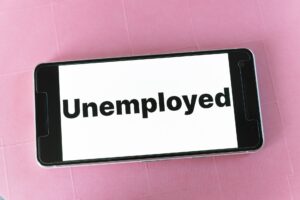Wealth is something you build. You build it through intentional spending, saving, and investing. You build it through healthy money habits. And you don’t have to be earning a certain amount to start building your wealth. It can be as simple as faithfully saving 1% of whatever you earn and later, when the savings become substantial, you invest.
What stands between you and your financial goals are the money mistakes you make over and over again. The sooner you can identify these money mistakes, the earlier you can start your journey toward your financial freedom. Here are 6 money mistakes you should avoid this year.
Not investing in financial literacy
At the top of the list of money mistakes is failing to invest in financial literacy. And no, I do not mean that you should now exclusively register for financial classes. Even before personalized financial coaching, financial literacy starts by building a basic knowledge of money matters. Such knowledge like understanding the ripple effect of small, unnecessary expenses and practicing healthy financial habits.
The current savings and investment landscape is complex. Financial responsibility is increasing; today you are responsible for managing your retirement funds, student loans, mortgage debt, and trading accounts, among others. Only financial literacy will help you make sound decisions that positively contribute to your wealth-building journey.
Too many undefined goals
I bet you too find it puzzling that with an increase in income, the things you considered luxuries one paycheck ago become instant necessities. When it comes to money, the truth of the matter remains: without intentionally defined goals for your income, you will always wonder where your money has gone to. It doesn’t matter how much you earn. If you don’t tell your money exactly where it should go, poof, it will disappear fast; faster than you can fully settle your monthly expenses.
The remedy for this mistake is to set personalized, specific, and measurable financial goals. Goals that are your own and not motivated by what your friends are buying or where they are vacationing. Whether long-term or short-term, these goals should be based on your honest financial position.
Not reviewing your budget
This is one mistake that can easily be overlooked. But remember money priorities change, sometimes you land windfall money, and other times, expenses that were once necessities cease to be. Both significant and the seemingly insignificant changes must be reflected in your budget as soon as possible so that you don’t lose track of your goal.
At least once a month, you should review your budget. Assess, adjust, and fine-tune the amount of money you allocate to your various budget categories. This significant step will allow you to gain insight into your financial habits and identify opportunities for improvement. So, if you’re spending a little more in one area than you intended and a little less in another, you can adjust your budget to better match your financial goals.
Paying debt without savings
Should you pay off your debts first and then save or save before paying off your debts? I am sure this is a situation you have struggled with many times before. The ideal solution I always recommend is that regardless of your financial priorities don’t forget to save. There are debt repayment methods you should consider to help you navigate debt repayment (like Debt Consolidation Method, Debt Avalanche Method, or Debt Snowball Method) depending on your financial situation.
Solely focusing on repaying your debts without building up a cash buffer is likely to expose you to more debts because when unforeseen expenses arise, you won’t have any wiggle room in your finances.
Not having an emergency fund
One sure way to swiftly sink into debt is failing to set up an emergency. Life is full of unpredictable expenses and it’s a healthy financial habit to prepare for them in advance. An emergency fund will protect you from these unexpected financial setbacks, keeping you out of bad debts. I advise an emergency fund of at least three to six months of living expenses as this will guarantee you peace of mind in case you lose your job or become unable to work due to illness.
While setting up your emergency fund, it’s important to remember that putting money away in the fund does not imply you are losing money. In reality, if you pick a high-interest saving account, your money will actively earn you interest.
Putting off retirement planning
If you are of the opinion that you should start your retirement plan in your late 30s or early 40s, you will find it really difficult to attain your dream retirement. Every time you put off retirement planning, you’re borrowing money from your future unemployed self.
Retirement investment is one area where you should maximize the power of compound interest. While your retirement might still be 20-30 years away, the best time to start working towards it was/is on your first salary. The second-best time is right now.
Faithfully, intentionally work on your personal finance habits and you will be able to grow your wealth for the future. And you know? You don’t have to weigh yourself down with tons of financial tips. Regardless of your current financial position, intentionally working to avoid the above money mistakes will put you on a steady path to financial freedom.







